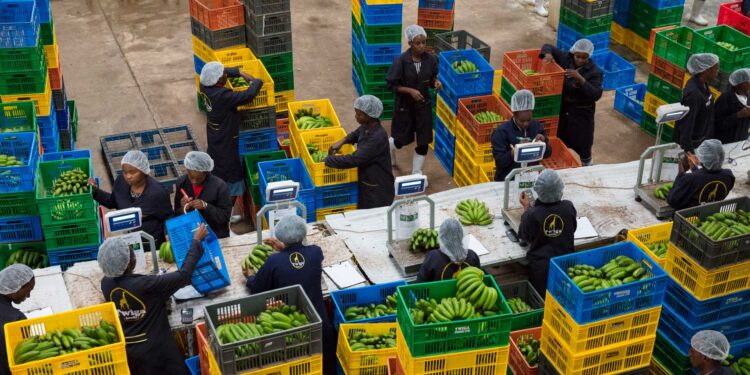Twiga Foods, a B2B food commerce startup, has officially commenced maize farming as part of its partnership with Kenya’s government to increase food production, BusinessDaily Africa reports.
The initiative is being carried out under the Galana-Kulalu Food Security Project, a pilot research project designed to improve food production in Kenya. The project has designated 10,000 acres for a model farm, aiming to test the performance of modern irrigation systems on a large scale. However, since 2014, the project has struggled to meet expectations as a result of bad weather as well as fluctuations in budgetary allocations.
In a bid to improve food production in the country, The Kenyan government announced in January 2023 that it would open up 5,000 acres of the Galana-Kulalu Irrigation Scheme to private companies under government-private partnerships, they are hopeful this will work out as planned. Twiga Foods has become the first private company to begin commercial farming in the Galana-Kulalu project area.
The startup opened its first farm in May 2022 after launching under a new subsidiary called Twiga Fresh, where it invested $10 million to produce onions, tomatoes, and watermelons on 1,606 acres of land, with an estimated yearly output of 150,000 tons of fresh produce. This integration of its supply chain will ensure that it delivers both Twiga and non-Twiga owned products to informal retailers.
“We will continue to run the B2B e-commerce business under Twiga, focused on building a one-stop supply-chain solution for informal retailers, delivering both Twiga and non-Twiga-owned products. Twiga Fresh, in addition to our growing range of private label products, will ensure we drive growth in customer numbers and broaden the basket size by offering quality produce at a discount against prevailing market prices,” said Peter Njonjo, Twiga CEO, and co-founder.
The Kenyan government has been impressed by Twiga’s commercial farming ambitions, and government officials have resolved to incorporate the startup to help bring life into the Galana-Kulalu Food Security Project.
By partnering with Twiga, the government hopes to achieve food security and create employment, particularly as Kenya is facing record-high prices in food staples, forcing the government to intervene with subsidies for maize flour and other staples.
“We have visited the farms where Twiga is doing production and we were convinced that they are the best. They will not only help us in achieving food security but also create employment,” said Mugambi Gitonga, Principal Secretary for Irrigation.
In order to mitigate the crisis, the Kenyan government made the decision to sign agreements that exempted the import of genetically modified produce, as well as special import agreements for essential food staples. However, these actions have faced significant criticism from farmers in Kenya.




